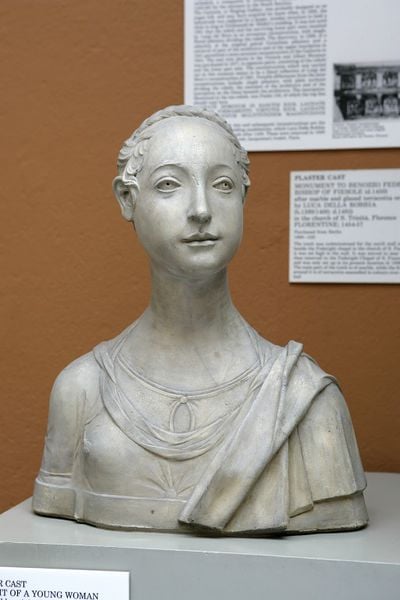Law & Politics
Renaissance Sculptures Looted From Germany During World War II Found in Moscow
The recovered works include statues by Donatello and Luca della Robbia.

The recovered works include statues by Donatello and Luca della Robbia.

Sarah Cascone

A cache of 59 Italian Renaissance sculptures from the collection of Berlin’s Bode Museum, seized by the Russian army during the Second World War, have been identified in the holdings of the National Pushkin Museum in Moscow, according to the Prussian Cultural Heritage Foundation.
“Most of the sculptures were damaged,” Neville Rowley, the Bode Museum’s curator of Italian Renaissance art, told the Art Newspaper, adding that some are in fragments. “They can’t currently be shown because of the state they are in. But there are plans to exhibit the sculptures at the Pushkin Museum after they’ve been restored.”

Caravaggio, Saint Matthew at the Angel (1602), enhanced color reproduction. Courtesy of Wikimedia Commons, colorized by Mikey Angels.
The artworks, by the likes of Donatello, Luca della Robbia, Andrea del Verrocchio, and Nicola and Giovanni Pisano, were placed in protective storage by the Kaiser Friedrich Museum (now called the Bode Museum) during World War II. The safekeeping measure failed when the building caught fire not once but twice in May 1945. Such treasures as a Caravaggio painting of St. Matthew, as well as wooden and stucco sculptures, were presumed destroyed.
Following the fire, the Soviet army transported what was left of the trove back to Moscow. So-called “Trophy Brigades” took as many as 2.6 million pieces of cultural property as reparations against the Nazis, according to the Art Newspaper, which adds that some 1.5 million works were returned in Germany in 1958.

Pushkin Museum of Fine Arts in Moscow. Courtesy of Wikimedia Commons user Ghirlandajo.
The Bode museum’s lost collection lay forgotten until 2005, when German and Russian museums began working together to determine what, if anything, had survived the blazes. Last year, the team revealed that a badly damaged Donatello bronze could potentially be partially restored. The further discovery of the 59 sculptures, dubbed a “sensational find” by researchers, according to German magazine Focus, was announced at a symposium in Florence.